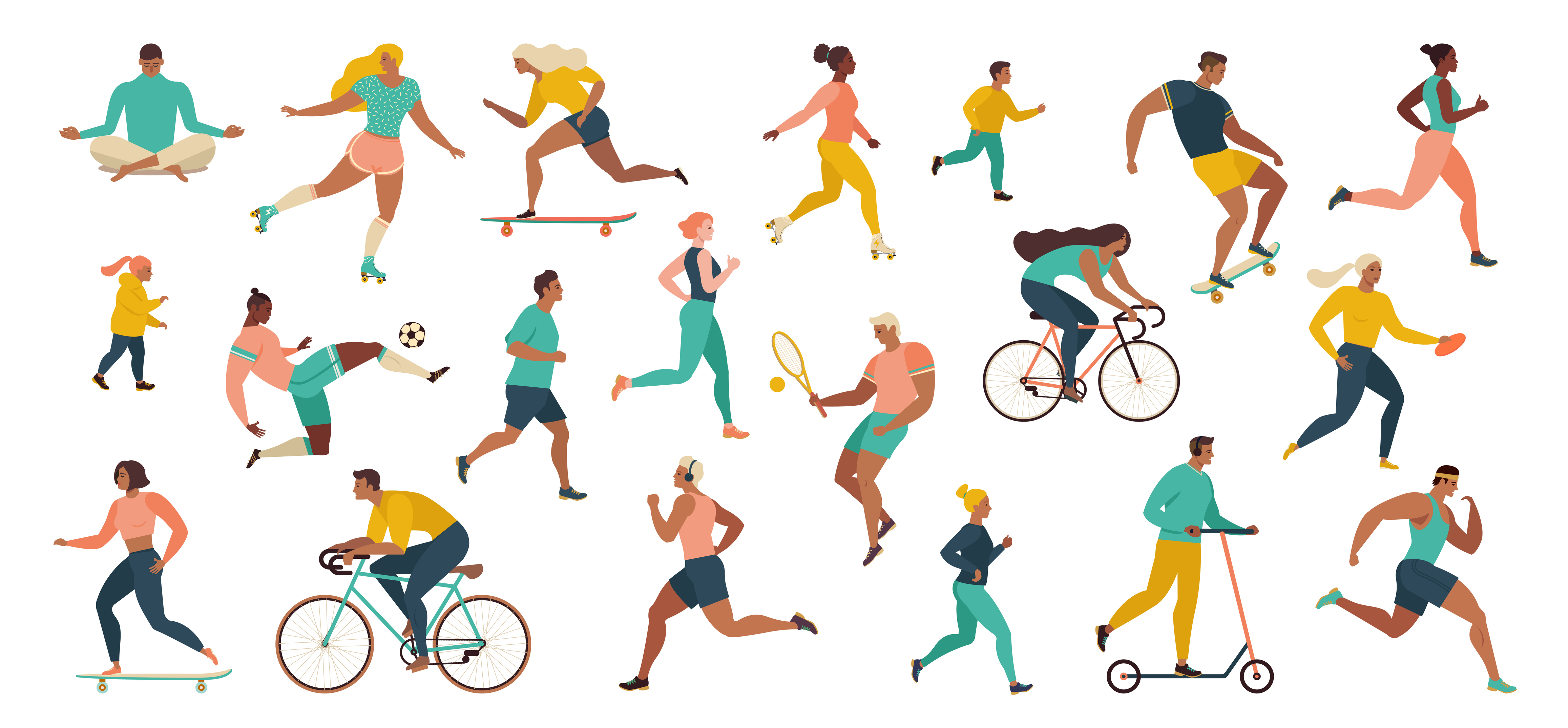How are Physical Activity and Academic Performance Related?
How are physical activity and academic performance related in college students?

Introduction:
Physical activity is a well known factor in living a healthy lifestyle. The benefits of all different types of physical activity have been heavily looked into, especially in relation to fitness and health. Outside of fitness and health, the benefits of physical activity are not as well known. In order to better understand what other possible benefits there are from physical activity, the relationship between physical activity and academic performance was examined.
Research Findings:
- A study from 2014 found students who use campus gyms tend to have higher GPAs than those who don't, and they also tend to stay in school more often.
- A 2021 study found that students who have more steps in a day tend to have higher GPAs.
- A 2022 study found higher levels of sedentary behavior is correlated with lower GPAs.
- A study from 2021 and from 2014 found higher GPAs are correlated with physical activity, fitness, and overall healthy lifestyle practices.
- Studies from 2014, 2021, and 2017 found when campus gym use was the way physical activity was measured, data supported higher physical activity levels being paired with higher academic achievement.

Practical Applications:
For students:
Getting up and moving around a little every 20-30 minutes when studying is likely beneficial.
A healthy lifestyle in general tends to lead to higher academic achievement, and physical activity is just one of the factors going into a healthy lifestyle. Also look into things such as amount of sleep and proper dieting.
Using campus fitness centers not only helps in feeling more connected to the campus community, but is also correlated with higher academic performance in college students.
Focusing on increasing the number of steps in a day and decreasing sedentary behavior are simple ways to work towards reaping the benefits of physical activity.
Any way you can find to move your body will likely be beneficial in not only the academic setting, but also in health overall.
For parents or educators:
Promote a lifestyle that incorporates regular physical activity.
If a student is struggling with studying, suggest they move around a bit whether that be going on a quick walk or doing short bursts of movement.
Additional Resources:
More Applications of Physical Activity
About the Author:
References:
Danbert, S. J., Pivarnik, J. M., McNeil, R. N., & Washington, I. J. (2014). Academic success and retention: The role of recreational sports fitness facilities. Recreational Sports Journal, 38(1), 14–22.
Das, R., Boren, S., Li, Q., & Dempsey, M. (2021). Exploring the relationship between usage of collegiate recreation facilities and academic achievement. Recreational Sports Journal, 45(1), 27–33.
Roddy, L. A., Pohle-Krauza, R. J., & Geltz, B. (2017). Recreation center utilization affects academic outcomes. Recreational Sports Journal, 41(1), 67–75.
Wald, A., Muennig, P. A., O’Connell, K. A., & Garber, C. E. (2014). Associations between healthy lifestyle behaviors and academic performance in U.S. undergraduates: A secondary analysis of the American College Health Association’s National College Health Assessment II. American Journal of Health Promotion, 28(5), 298–305.

Comments
Post a Comment